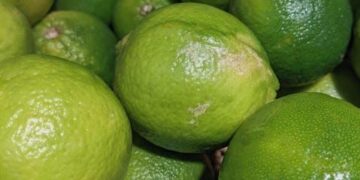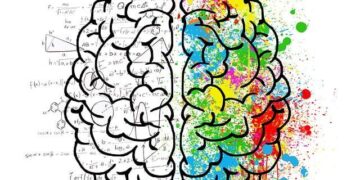Table of Contents
For those seeking immediate direction, the most effective strategy follows a tiered approach.
Lasting success comes from building a strong foundation, not from starting with a quick fix.
- Foundational Recalibration (Highest Impact): Master the non-negotiable basics first. This involves optimizing your sleep for hormonal balance, implementing behavioral strategies to manage stress, and structuring your daytime nutrition with adequate protein and fiber to prevent evening hunger signals from ever firing.
- Strategic Natural Interventions (Targeted Support): If hunger persists, use food as your tool. A planned evening snack rich in slow-digesting protein and fiber, or a calming herbal tea, can provide physiological and psychological satiety without disrupting sleep.
- Cautious Supplementation (Use With Care): Over-the-counter supplements should be viewed as specialized tools, not primary solutions. Ingredients like Ashwagandha (for stress-eaters) or Chromium Picolinate (for carb-cravers) have some evidence but must be used with a clear understanding of their purpose and limitations, ideally under professional guidance.
- Clinical Intervention (Medical Supervision Required): For individuals with clinically diagnosed conditions like obesity, FDA-approved prescription medications can be powerful tools. However, they come with significant side effects and require a thorough consultation with a healthcare professional to determine if the benefits outweigh the risks, especially concerning sleep quality.
Section I: Deconstructing Night-Time Appetite: The Science of Your Internal Control Panel
To gain control, we must first understand the machinery.
Night-time hunger isn’t random; it’s the output of a complex system of hormones, neurotransmitters, and biological rhythms.
Think of it as a control panel with three critical displays: the Hormonal Dials, the Stress Gauge, and the Master Clock.
When they’re out of sync, the hunger alarm blares.
1.1 The Hormonal Dials: The Ghrelin and Leptin Tug-of-War
At the heart of appetite regulation are two key hormones operating in a delicate balance.1
- Ghrelin (The “Go” Signal): Often called the “hunger hormone,” ghrelin is primarily produced in the stomach. When your stomach is empty, it releases ghrelin, which travels to your brain’s hypothalamus and signals that it’s time to eat.1 It’s the body’s primary orexigenic, or appetite-stimulating, signal.
- Leptin (The “Stop” Signal): Produced by your fat cells, leptin is the counterbalance. It signals to the brain that your energy stores are sufficient and you’re full, effectively suppressing appetite.2 It is the body’s primary anorexigenic, or appetite-suppressing, signal.
Under normal conditions, these hormones create a feedback loop that maintains energy balance.
However, several factors, particularly those prevalent in the evening, can throw these dials into disarray, turning up the ghrelin and silencing the leptin.
1.2 The Master Clock: How Sleep Deprivation Hijacks Your Hunger
The single most powerful factor throwing your control panel into chaos is a lack of sleep.
The connection between sleep and appetite isn’t just about being tired and reaching for a pick-me-up; it’s a profound neurochemical event.4
- The Hormonal Cascade of Poor Sleep: Seminal research has demonstrated that even partial sleep deprivation triggers a disastrous hormonal shift. Leptin levels decrease significantly, meaning your brain doesn’t get the “I’m full” signal. Simultaneously, ghrelin levels surge, meaning the “I’m hungry” signal is screaming.1 One study found that sleeping only four hours for two nights led to an 18% decrease in leptin and a 28% increase in ghrelin.7 This creates a perfect storm of biochemically-driven hunger that is nearly impossible to fight with willpower alone.
- The Brain on No Sleep: The damage goes beyond hormones. Neuroimaging studies reveal that sleep deprivation impairs the prefrontal cortex, the brain’s executive decision-making center responsible for impulse control.8 At the same time, it hyper-activates the brain’s reward centers, like the amygdala and insular cortex.8 This creates a dangerous dual effect: high-calorie, sugary, and fatty foods appear intensely more desirable, while your ability to resist them is critically weakened.8 Your brain, desperate for its primary fuel (glucose), starts craving the quickest energy sources it can find—candy, cookies, and cake.7
While the hormonal explanation is powerful, it’s important to note the context of our modern environment.
Some research suggests that in an “obesogenic environment” with constant access to highly palatable foods, the hedonic or pleasure-seeking drive to eat can become so strong that it overrides hormonal satiety signals.9
This highlights that poor sleep makes us vulnerable on both a physiological and a psychological level.
1.3 The Stress Gauge: The Cortisol Connection
Chronic stress is the second saboteur of your control panel.
When you’re stressed, your body initiates a hormonal cascade designed for survival.6
- The Adrenaline-Cortisol Sequence: In an acute stress situation, your body releases adrenaline, which triggers the “fight-or-flight” response and temporarily shuts down your appetite.6 However, if the stress persists—as it often does from work deadlines, financial worries, or emotional turmoil—your body releases a second hormone: cortisol.6
- Cortisol’s Mission: Refuel at All Costs: Cortisol’s job is to ensure your body has enough energy to handle the perceived threat. It does this by ramping up your appetite, specifically driving cravings for high-energy foods rich in fat, salt, and sugar.6 To make matters worse, cortisol also directly stimulates the release of ghrelin, creating a powerful hormonal double-whammy that amplifies hunger signals.6 Research has shown that the afternoon and evening are particularly high-risk periods for stress-induced overeating.12
1.4 Circadian Disruption and Night Eating Syndrome (NES)
For some, night-time eating goes beyond simple cravings and becomes a clinical disorder.
Your body’s internal 24-hour clock, or circadian rhythm, governs cycles of sleep, alertness, and hunger.13
Research shows that this internal clock naturally increases hunger in the evening, but in some individuals, this system becomes severely dysfunctional.13
Night Eating Syndrome (NES) is a recognized eating disorder characterized by:
- Consuming at least 25% of daily calories after the evening meal.13
- Waking up at night to eat multiple times per week.16
- A persistent belief that one cannot fall asleep or return to sleep without eating.15
- A lack of appetite in the morning.16
NES is linked to a desynchronized circadian rhythm where hormones are released at the wrong times—making you hungry and alert at night instead of during the day.14
It’s often accompanied by lower overnight melatonin levels, elevated cortisol, and is strongly exacerbated by stress.13
Understanding this science reveals a critical truth: night-time hunger is not a singular issue.
It’s a self-perpetuating vicious cycle.
Stress worsens sleep, poor sleep dysregulates hunger hormones, and the resulting poor food choices further disrupt sleep and increase stress.
The most effective solutions, therefore, are not those that simply try to muffle the hunger alarm, but those that systematically recalibrate the entire control panel.
Section II: The Foundational Triad: Mastering Sleep, Stress, and Structured Eating
Before you ever consider a pill or supplement, you must address the foundational behaviors that regulate your body’s core appetite systems.
The battle against night-time hunger is overwhelmingly won or lost based on your actions during the day.
Mastering these three pillars is the most powerful “appetite suppressant” available.
2.1 Optimizing Sleep Hygiene for Hormonal Regulation
The primary goal is to consistently achieve 7-9 hours of high-quality sleep.
This is the non-negotiable first step to allowing ghrelin and leptin to naturally rebalance.5
- Anchor Your Circadian Rhythm: Go to bed and wake up at the same time every day, even on weekends. This consistency reinforces your body’s natural sleep-wake cycle.5
- Engineer Your Sleep Environment: Your bedroom should be a sanctuary for sleep. Keep it dark, quiet, and cool. Blackout curtains, a white noise machine, and a lower thermostat setting can dramatically improve sleep quality.5
- Implement a “Power-Down” Hour: For the last 60 minutes before bed, avoid all screens (phones, tablets, TVs). The blue light emitted from these devices suppresses melatonin production. Instead, read a physical book, listen to calming music, or take a warm bath.5 Avoid caffeine after 2 PM.
2.2 Behavioral Stress Management Techniques
The goal here is to lower chronic cortisol levels and sever the learned connection between feeling stressed and reaching for food.10
- Practice the 15-Minute Pause: When an evening craving strikes, don’t react immediately. Set a timer for 15 minutes. During that time, check in with your emotions. Are you truly hungry, or are you bored, anxious, or sad? Use this time to engage in a non-food-related activity: call a friend, read a chapter of a book, or go for a short walk. Often, the craving will pass as you address the underlying emotion.6
- Master Progressive Muscle Relaxation (PMR): This technique is clinically used to treat NES and is highly effective for general stress.14 Lie down comfortably. Starting with your toes, tense the muscles for five seconds, then release for ten seconds, noticing the feeling of relaxation. Work your way up through your entire body—calves, thighs, abdomen, arms, and face. This practice actively reduces physical tension and calms the nervous system.
- Explore Cognitive Behavioral Therapy (CBT): For those with more significant challenges like NES, CBT is a powerful therapeutic tool. It works by helping you identify and challenge the unhelpful beliefs that drive night eating, such as “I can’t sleep unless I eat”.16
2.3 Strategic Daytime Nutrition: Pre-empting Night-time Hunger
The way you fuel your body during the day directly dictates your hunger levels at night.
The goal is to provide consistent, satiating energy to prevent the blood sugar crashes and nutrient deficits that trigger evening ravenousness.
- Eat Regular, Balanced Meals: Skipping meals, especially breakfast, is a primary trigger for night-time overeating.18 Eating consistently every 3-4 hours helps stabilize blood sugar and metabolism, leading to better appetite control throughout the day and into the evening.6
- Prioritize Protein at Every Meal: Protein is the most satiating macronutrient. One study found that eating frequent, high-protein meals reduced cravings by 60% and cut the desire to eat at night in half.19 Aim for at least 20-25 grams of protein at breakfast, lunch, and dinner from sources like lean meats, fish, eggs, Greek yogurt, beans, and lentils.19
- Leverage the Power of Fiber: High-fiber foods, particularly those with soluble fiber, slow down digestion and promote a prolonged feeling of fullness.25 Including whole grains, vegetables, fruits, nuts, and seeds in your daytime meals helps regulate blood sugar and prevent the energy dips that lead to evening cravings.6
- Hydrate Intelligently: The hypothalamus, the part of the brain that regulates both hunger and thirst, can sometimes mix up its signals.17 Before reaching for a snack, drink a large glass of water and wait 15 minutes. You may find that you were simply thirsty.24
These three pillars are synergistically linked.
Better sleep reduces stress.
Lower stress improves sleep.
A stable diet prevents energy crashes that worsen mood and stress.
Approaching this as an interconnected system is far more effective than trying to fix one part in isolation.
Section III: Natural Satiety Strategies: Leveraging Food and Botanicals
After establishing a strong foundation, you may still experience occasional night-time hunger.
In this case, the goal is not to ignore it, but to address it strategically with choices that promote satiety without disrupting sleep or derailing your progress.
3.1 The Strategic Evening Snack: A Tool, Not a Failure
For many, a small, planned evening snack is more effective than total restriction.
It can prevent hunger from disrupting sleep and behaviorally replaces a mindless binge with a controlled, beneficial action.23
The key is choosing a snack that combines protein and fiber for sustained satiety.
- Protein-Rich Options:
- Greek Yogurt or Cottage Cheese: These are rich in casein, a slow-digesting protein that provides a steady release of amino acids overnight. This not only keeps you full but also supports muscle repair while you sleep.29 A half-cup serving is typically sufficient.
- Hard-Boiled Egg: A simple, perfectly portioned source of high-quality protein and healthy fats that promotes fullness.30
- A Small Handful of Nuts: Almonds, walnuts, or pistachios offer a satisfying combination of protein, fiber, and healthy fats. Portion control is key; aim for about a quarter-cup.29
- High-Fiber Options:
- An Apple with Nut Butter: This classic combination provides soluble fiber from the apple and protein/fat from the nut butter, creating a powerful satiety duo.28
- Vegetables with Hummus: The fiber from vegetables like carrots or celery sticks paired with the protein and fiber from chickpea-based hummus is a nutrient-dense, low-calorie option.32
3.2 Therapeutic Herbal Teas: Soothing the Habit
Often, the urge to eat at night is tied to habit and the need for a comforting ritual.
Replacing the act of snacking with the ritual of sipping a warm, non-caffeinated herbal tea can be remarkably effective.28
- Peppermint Tea: The menthol in peppermint has a natural muscle-relaxant effect on the gastrointestinal tract, which can ease bloating and improve digestion. This soothing effect can help suppress appetite.34
- Ginger Tea: Known for its digestive benefits, ginger can also provide a gentle metabolic boost and may help reduce appetite.27
- Chamomile Tea: While not a direct appetite suppressant, chamomile is prized for its calming properties. It contains flavonoids that may interact with receptors in the brain to promote relaxation and prepare the body for sleep, directly addressing the stress and anxiety components of night eating.36
Section IV: The Supplement Aisle Scrutinized: An Evidence-Based Review
If foundational and natural strategies are in place and challenges persist, some may consider over-the-counter (OTC) supplements.
This market is rife with exaggerated claims, and it is crucial to approach it with skepticism and an evidence-based mindset.
Many “night-time fat burners” are, in reality, sleep aids packaged with secondary ingredients of questionable efficacy.
The National Institutes of Health (NIH) and Mayo Clinic caution that there is little robust evidence that any dietary supplement can produce healthy, long-term weight loss.38
The following table provides a critical analysis of common ingredients found in night-time appetite suppressants and weight-loss formulas.
| Ingredient | Proposed Mechanism | Summary of Efficacy Evidence | Common Side Effects | Impact on Sleep | |
| Melatonin | Sleep-regulating hormone; may influence energy metabolism. | Primarily effective as a sleep aid. Animal studies suggest a role in hunger control, but human evidence for weight loss is limited.40 Its benefit is likely indirect via improved sleep. | Generally safe for short-term use; may cause dizziness or daytime grogginess.36 | Positive (Primary function is to promote sleep). | |
| L-Theanine | Amino acid that promotes relaxation by increasing calming neurotransmitters (GABA, serotonin). | Effective for reducing stress and anxiety without sedation.42 Weight-loss effects are indirect, through stress reduction and improved sleep quality.43 | Generally well-tolerated. May lower blood pressure.43 | Positive (Promotes relaxation conducive to sleep). | |
| 5-HTP | Precursor to serotonin, which regulates appetite, mood, and sleep. | Some small or dated studies suggest it can increase satiety and reduce calorie intake.44 Can also improve sleep quality.46 | Nausea, heartburn, diarrhea, drowsiness.47 | Risk of serotonin syndrome if combined with SSRIs or other serotonergic drugs.47 | Positive (Precursor to serotonin and melatonin). |
| Ashwagandha | Adaptogenic herb that modulates the stress response. | Primarily works by lowering cortisol levels.48 A placebo-controlled trial found it significantly reduced stress, food cravings, and cortisol, aiding weight management.50 | Generally safe but can cause mild drowsiness or stomach upset. Should be used with caution by those with autoimmune or thyroid conditions.51 | Positive (Reduces stress, which improves sleep). | |
| Glucomannan | Highly viscous soluble fiber that absorbs water and expands in the stomach. | Forms a bulky gel that promotes fullness and slows digestion.52 Evidence is mixed; some studies show significant weight loss 53, while others find no effect.55 | Gas, bloating, diarrhea.52 | Serious risk of esophageal or GI obstruction if taken without sufficient water, especially in tablet form.56 | Neutral to Negative (Can cause GI discomfort that may interfere with sleep). |
| White Kidney Bean Extract | Contains phaseolamine, an alpha-amylase inhibitor that blocks starch digestion. | Can reduce carbohydrate absorption, leading to modest weight loss, particularly with high-carb meals.58 Does not block sugar or fat.58 | Gas and bloating due to fermentation of undigested carbs in the colon.58 | Neutral to Negative (Can cause GI discomfort that may interfere with sleep). | |
| Chromium Picolinate | Trace mineral that enhances insulin action and glucose metabolism. | May help stabilize blood sugar and reduce cravings for carbohydrates.60 Studies show modest effects on weight loss and appetite.61 | Generally safe at recommended doses. High doses may cause headache, stomach upset, or insomnia.62 | Neutral to Negative (Insomnia is a possible side effect at high doses). | |
| Grains of Paradise | Spice related to ginger; thought to activate brown adipose tissue (BAT) for thermogenesis. | Limited human evidence. One study showed it increased energy expenditure and reduced visceral fat.63 More research is needed. | Can cause stomach and urinary system irritation.64 One animal study raised concerns about potential liver toxicity at high doses.65 | Neutral. | |
| Green Tea Extract | Contains catechins (EGCG) and caffeine, which may boost metabolism. | Evidence for significant weight loss is mixed.66 The caffeine content makes it unsuitable for evening use. | Nausea, constipation. Uncommon but serious reports of liver injury associated with concentrated extracts.67 | Negative (Contains caffeine, a stimulant that disrupts sleep). |
A critical look at this evidence reveals two key patterns.
First, many popular “night-time fat burners” are primarily sleep aids, with their main benefit coming from improving sleep quality, which in turn helps regulate appetite hormones.
Second, the ingredients with the most direct and plausible mechanisms for appetite suppression (5-HTP, Glucomannan) also carry the most significant acute safety warnings.
This underscores the importance of a “food first” approach and the necessity of consulting a healthcare professional before beginning any supplement regimen, especially if you take other medications.
Section V: Prescription Interventions: A Clinical Overview
For individuals with a clinical diagnosis of obesity (BMI ≥ 30) or overweight (BMI ≥ 27) with a weight-related health condition, prescription medications can be a powerful component of a comprehensive weight-management plan.
These are not casual solutions; they are potent drugs with significant side effects that require careful medical supervision.70
A crucial consideration for night-time eating is how these medications affect sleep.
The most common oral appetite suppressants are stimulant-based and can cause insomnia, potentially exacerbating the root cause of sleep-deprivation-induced hunger.
This creates a paradox where the treatment could worsen the underlying problem.
The following table summarizes the key FDA-approved medications for chronic weight management.
| Drug Name (Brand) | Mechanism of Action | Average Efficacy (% Body Weight Loss) | Common Side Effects | Suitability for Night-Time Use |
| Phentermine/topiramate (Qsymia) | Phentermine (stimulant) suppresses appetite; topiramate (anticonvulsant) enhances satiety.71 | ~9-11% over 1 year.72 | Tingling sensations, dizziness, dry mouth, constipation, insomnia.73 | Poor. The stimulant component can significantly disrupt sleep. Dosing is typically in the morning to avoid this.75 |
| Naltrexone/bupropion (Contrave) | Naltrexone (opioid antagonist) reduces food cravings; bupropion (antidepressant) reduces appetite.76 | ~5-9% over 1 year.77 | Nausea, constipation, headache, vomiting, dizziness, insomnia.78 | Poor to Moderate. Insomnia is a common side effect. The evening dose should be taken early to minimize sleep disruption.81 |
| Liraglutide (Saxenda) | GLP-1 receptor agonist. Mimics a gut hormone to slow stomach emptying and signal fullness to the brain.84 | ~5-10% over 1 year.84 | Nausea, diarrhea, constipation, vomiting, stomach pain, headache.84 | Good. It is a daily injection that can be taken at any time and does not typically cause insomnia.86 |
| Semaglutide (Wegovy) | GLP-1 receptor agonist. Similar to liraglutide but longer-acting.88 | ~15% over 68 weeks.89 | Nausea, diarrhea, vomiting, constipation, stomach pain, headache, fatigue.90 | Good. It is a weekly injection that can be taken at any time and is not associated with insomnia.90 |
| Orlistat (Xenical, Alli) | Lipase inhibitor. Blocks the absorption of ~25-30% of dietary fat in the gut. Does not suppress appetite.94 | ~5-7% over 1 year.95 | Oily spotting, gas, loose stools, fecal urgency.94 | Good. It is taken with meals containing fat and has no direct effect on sleep. A multivitamin is often recommended at bedtime.94 |
This clinical overview highlights a critical point: choosing the right medication requires matching the drug’s mechanism to the patient’s specific problem.
A person whose night-time eating is driven by emotional cravings might be a candidate for Contrave, whereas someone who struggles with satiety might benefit more from a GLP-1 agonist like Wegovy.
Given the high prevalence of sleep disruption among those with night-time eating, the non-stimulant GLP-1 agonists and Orlistat are generally more suitable options from a sleep-hygiene perspective.
Ultimately, the decision to use a prescription medication is a serious one that must be made in close partnership with a healthcare professional who can assess your full health profile, discuss the risks and benefits, and provide ongoing monitoring.70
Conclusion: Becoming the Master of Your Control Panel
My journey from being a victim of the “9 PM Hunger Monster” to understanding the intricate biology behind it taught me the most important lesson of my career: you cannot suppress a problem into submission.
You must understand it, respect it, and work with your body’s systems, not against them.
The frustrating cycle of night-time eating was finally broken not when I found a magic pill, but when I started acting like a skilled operator of my own biological control panel.
I stopped smashing the alarm bell and started looking at the dials.
I made 7-8 hours of sleep a non-negotiable priority, resetting my master clock.
I developed a 10-minute evening wind-down routine to manage my stress gauge.
I front-loaded my days with protein and fiber, ensuring my hormonal dials were never in the red by evening.
The first time I went an entire week without a single late-night binge, waking up feeling rested and in control, was more empowering than any number on a scale.
It was freedom.
The best night-time appetite suppressant is not a single product you can buy.
It is a personalized, tiered strategy that you build.
- Start with the Foundation: Prioritize sleep, manage stress, and structure your daytime eating. This is where 90% of the battle is won.
- Use Natural Tools: If needed, deploy a strategic evening snack or a calming herbal tea to manage residual hunger and satisfy the ritualistic aspect of eating.
- Approach Supplements with Caution: View them as tertiary tools for specific issues, used only after consulting a professional.
- Consider Clinical Options as a Last Resort: For those who qualify, prescription medications are a valid and powerful option, but they must be managed by a physician who understands your complete health picture, especially your sleep patterns.
By shifting your perspective from fighting a craving to recalibrating a system, you move from a position of frustration to one of empowerment.
You become the master of your own control panel, capable of making the precise adjustments needed to silence the alarms for good and finally find peace in your evenings.
Works cited
- The Impact of Sleep on Appetite and Metabolism – Mount Sinai Today, accessed on August 11, 2025, https://health.mountsinai.org/blog/the-impact-of-sleep-on-appetite-and-metabolism/
- The Impact of Sleep Deprivation on Hunger-Related Hormones: A Meta-Analysis and Systematic Review – MDPI, accessed on August 11, 2025, https://www.mdpi.com/2673-4168/5/2/48
- Ghrelin and Sleep – News-Medical.net, accessed on August 11, 2025, https://www.news-medical.net/health/Ghrelin-and-Sleep.aspx
- How a Lack of Sleep May Increase Calorie Consumption, accessed on August 11, 2025, https://www.sleepfoundation.org/sleep-deprivation/lack-sleep-may-increase-calorie-consumption
- Sleep and Appetite: The Complex Connection Between Rest and Hunger – Sleepiest, accessed on August 11, 2025, https://www.sleepiest.com/blog/the-science-of-sleep/sleep-and-appetite
- Why Am I Hungrier at Night? – The Healthy Eating Clinic, accessed on August 11, 2025, https://healthyeatingclinic.com.au/why-am-i-hungrier-at-night/
- Sleep loss boosts appetite may encourage weight gain – UChicago Medicine, accessed on August 11, 2025, https://www.uchicagomedicine.org/forefront/news/sleep-loss-boosts-appetite-may-encourage-weight-gain
- The Connection Between Sleep and Appetite | Psychology Today, accessed on August 11, 2025, https://www.psychologytoday.com/us/blog/sleep-newzzz/201310/the-connection-between-sleep-and-appetite
- Increased Food Intake by Insufficient Sleep in Humans: Are We Jumping the Gun on the Hormonal Explanation? – Frontiers, accessed on August 11, 2025, https://www.frontiersin.org/journals/endocrinology/articles/10.3389/fendo.2014.00116/full
- How to Stop Stress Eating – Within Health, accessed on August 11, 2025, https://withinhealth.com/learn/articles/how-to-stop-stress-eating
- Polyphagia (Hyperphagia): What It Is, Causes & Symptoms – Cleveland Clinic, accessed on August 11, 2025, https://my.clevelandclinic.org/health/symptoms/24637-polyphagia-hyperphagia
- Tips to Manage Stress Eating | Johns Hopkins Medicine, accessed on August 11, 2025, https://www.hopkinsmedicine.org/health/wellness-and-prevention/tips-to-manage-stress-eating
- What Is Nighttime Eating Syndrome (NES)? – Thorne, accessed on August 11, 2025, https://www.thorne.com/take-5-daily/article/it-s-not-just-cravings-the-science-behind-nighttime-eating-syndrome-nes
- Night Eating Syndrome: What It Is, Symptoms & Treatment – Cleveland Clinic, accessed on August 11, 2025, https://my.clevelandclinic.org/health/diseases/21731-night-eating-syndrome-nes
- Night Eating Syndrome – StatPearls – NCBI Bookshelf, accessed on August 11, 2025, https://www.ncbi.nlm.nih.gov/books/NBK585047/
- Night Eating Syndrome: Symptoms, Causes, and Treatments – Sleep Foundation, accessed on August 11, 2025, https://www.sleepfoundation.org/nutrition/night-eating-syndrome
- 14 Reasons You’re Suddenly Hungry All the Time – GoodRx, accessed on August 11, 2025, https://www.goodrx.com/well-being/diet-nutrition/why-am-i-so-hungry
- End Your Nighttime Eating Habits | Franciscan Health, accessed on August 11, 2025, https://www.franciscanhealth.org/community/blog/stop-nighttime-eating
- How to Curb Late Night Snacking – Nutrition HealthWorks, accessed on August 11, 2025, https://nutritionhealthworks.com/nutrition-blog/how-curb-late-night-snacking/
- 5 Strategies To End Late-Night Snacking – Ellie Krieger, accessed on August 11, 2025, https://www.elliekrieger.com/5-strategies-end-late-night-snacking/
- Night Eating Syndrome Treatment | How to – Within Health, accessed on August 11, 2025, https://withinhealth.com/learn/articles/treatment-of-night-eating-syndrome
- Optimal management of night eating syndrome: challenges and solutions | NDT, accessed on August 11, 2025, https://www.dovepress.com/optimal-management-of-night-eating-syndrome-challenges-and-solutions-peer-reviewed-fulltext-article-NDT
- Night Eating Syndrome: How to End the Nighttime Eating Cycle and Sleep Better, accessed on August 11, 2025, https://www.eatingrecoverycenter.com/resources/night-eating-syndrome
- Why You Binge at Night and How to Stop – Guthrie, accessed on August 11, 2025, https://www.guthrie.org/blog/why-you-binge-night-and-how-stop
- The 11 Best Natural Appetite Suppressants | Take Care by Hers, accessed on August 11, 2025, https://www.forhers.com/blog/natural-appetite-suppressant
- 8 Natural Appetite Suppressants for Weight Management – Health, accessed on August 11, 2025, https://www.health.com/natural-appetite-suppressants-8650955
- How to naturally suppress appetite: 11 evidence-based ways, accessed on August 11, 2025, https://www.medicalnewstoday.com/articles/320625
- 7 Easy Ways to Curb Your Nighttime Snack Cravings – Virtua, accessed on August 11, 2025, https://www.virtua.org/articles/7-easy-ways-to-curb-your-nighttime-snack-cravings
- Hungry at Bedtime? Try One of These Late Night High-Protein Snacks – Spartan Race, accessed on August 11, 2025, https://www.spartan.com/en/blog/best-high-protein-healthy-bedtime-snacks
- 14 Foods That Are Incredibly Filling – Healthline, accessed on August 11, 2025, https://www.healthline.com/nutrition/15-incredibly-filling-foods
- The 11 Best Bedtime Snacks to Help You Sleep, According to Registered Dietitians, accessed on August 11, 2025, https://www.onepeloton.com/blog/bedtime-snacks-for-sleep
- How to Cope with Nighttime Hunger | ThedaCare, accessed on August 11, 2025, https://thedacare.org/how-to-cope-with-nighttime-hunger/
- The 6 Best Prepackaged Protein Snacks Before Bed | LK – Lorissa’s Kitchen, accessed on August 11, 2025, https://www.lorissaskitchen.com/blog/the-6-best-prepackaged-protein-snacks-before-bed/
- 9 Types of Teas That May Help With Weight Loss – Health, accessed on August 11, 2025, https://www.health.com/teas-for-weight-loss-8639989
- 5 Best Herbal Teas for Weight Loss – NutraTea, accessed on August 11, 2025, https://nutratea.co.uk/blogs/5-best-herbal-teas-for-weight-loss/
- Natural Sleep Aids: Home Remedies to Help You Sleep | Johns Hopkins Medicine, accessed on August 11, 2025, https://www.hopkinsmedicine.org/health/wellness-and-prevention/natural-sleep-aids-home-remedies-to-help-you-sleep
- SkinnyFit ZzzTox Nighttime Detox Tea: Caffeine-Free, India | Ubuy, accessed on August 11, 2025, https://www.ubuy.co.in/product/3PF8I60-skinnyfit-zzztox-nighttime-detox-tea-caffeine-free-all-natural-laxative-free-chamomile-lavender-vegan-supports-weight-loss-helps-fight-toxins-restful
- Dietary Supplements – Nutrition.gov, accessed on August 11, 2025, https://www.nutrition.gov/topics/dietary-supplements
- Dietary supplements for weight loss – Mayo Clinic, accessed on August 11, 2025, https://www.mayoclinic.org/healthy-lifestyle/weight-loss/in-depth/weight-loss/art-20046409
- A connection between sleep and hunger – Revista Fapesp, accessed on August 11, 2025, https://revistapesquisa.fapesp.br/en/a-connection-between-sleep-and-hunger/
- Low-Dose Melatonin & Weight Loss – The Center for Internal and Integrative Medicine, accessed on August 11, 2025, https://www.centerforinternalmed.com/blog/low-dose-melatonin-weight-loss
- L-Theanine for Sleep: Dosage and Side Effects, accessed on August 11, 2025, https://sleepdoctor.com/pages/sleep-aids/l-theanine
- What You Need to Know About L-theanine | Psychology Today, accessed on August 11, 2025, https://www.psychologytoday.com/us/blog/sleep-newzzz/201708/what-you-need-know-about-l-theanine
- 5-HTP: Benefits, Uses, Side Effects, and More – Health, accessed on August 11, 2025, https://www.health.com/5-htp-benefits-7693229
- 5 Science-Based Benefits of 5-HTP (Plus Dosage and Side Effects) – Healthline, accessed on August 11, 2025, https://www.healthline.com/nutrition/5-htp-benefits
- The impact of 5-hydroxytryptophan supplementation on sleep quality and gut microbiota composition in older adults: A randomized controlled trial – PubMed, accessed on August 11, 2025, https://pubmed.ncbi.nlm.nih.gov/38309227/
- 5-HTP: MedlinePlus Supplements, accessed on August 11, 2025, https://medlineplus.gov/druginfo/natural/794.html
- A Prospective, Randomized Double-Blind, Placebo-Controlled Study of Safety and Efficacy of a High-Concentration Full-Spectrum Extract of Ashwagandha Root in Reducing Stress and Anxiety in Adults – PubMed Central, accessed on August 11, 2025, https://pmc.ncbi.nlm.nih.gov/articles/PMC3573577/
- Effects of Withania somnifera on Cortisol Levels in Stressed Human Subjects: A Systematic Review – PubMed Central, accessed on August 11, 2025, https://pmc.ncbi.nlm.nih.gov/articles/PMC10745833/
- Body Weight Management in Adults Under Chronic Stress Through Treatment With Ashwagandha Root Extract: A Double-Blind, Randomized, Placebo-Controlled Trial – PubMed, accessed on August 11, 2025, https://pubmed.ncbi.nlm.nih.gov/27055824/
- Effects of Withania somnifera (Ashwagandha) on Stress and the Stress-Related Neuropsychiatric Disorders Anxiety, Depression, and Insomnia – PubMed Central, accessed on August 11, 2025, https://pmc.ncbi.nlm.nih.gov/articles/PMC8762185/
- Glucomannan’s therapeutic uses | EBSCO Research Starters, accessed on August 11, 2025, https://www.ebsco.com/research-starters/health-and-medicine/glucomannans-therapeutic-uses
- Konjac Glucomannan Dietary Supplementation Causes Significant Fat Loss in Compliant Overweight Adults – PubMed, accessed on August 11, 2025, https://pubmed.ncbi.nlm.nih.gov/26492494/
- Glucomannan and obesity: a critical review – PubMed, accessed on August 11, 2025, https://pubmed.ncbi.nlm.nih.gov/16320857/
- Safety and Efficacy of Glucomannan for Weight Loss in Overweight and Moderately Obese Adults – PMC, accessed on August 11, 2025, https://pmc.ncbi.nlm.nih.gov/articles/PMC3892933/
- Glucomannan Uses, Benefits & Dosage – Drugs.com, accessed on August 11, 2025, https://www.drugs.com/npp/glucomannan.html
- GLUCOMANNAN: Overview, Uses, Side Effects, Precautions, Interactions, Dosing and Reviews – WebMD, accessed on August 11, 2025, https://www.webmd.com/vitamins/ai/ingredientmono-205/glucomannan
- The ‘Carb Blocker’ | What Is White Kidney Bean Extract? – Myprotein, accessed on August 11, 2025, https://us.myprotein.com/thezone/supplements/what-is-white-kidney-bean-extract-best-carb-blocker/
- It’s No Has Bean: A Review of the Effects of White Kidney Bean Extract on Body Composition and Metabolic Health, accessed on August 11, 2025, https://pmc.ncbi.nlm.nih.gov/articles/PMC7284421/
- Thorne Chromium Picolinate – Mayo Clinic Store, accessed on August 11, 2025, https://store.mayoclinic.com/thorne-chromium-picolinate.html
- Chromium: improves mood and helps reduce your sweet tooth – Food for the Brain, accessed on August 11, 2025, https://foodforthebrain.org/cog-nition/chromium-improves-mood-and-helps-reduce-your-sweet-tooth/
- CHROMIUM: Overview, Uses, Side Effects, Precautions, Interactions, Dosing and Reviews, accessed on August 11, 2025, https://www.webmd.com/vitamins/ai/ingredientmono-932/chromium
- Daily ingestion of grains of paradise (Aframomum melegueta) extract increases whole-body energy expenditure and decreases visceral fat in humans – PubMed, accessed on August 11, 2025, https://pubmed.ncbi.nlm.nih.gov/24759256/
- Grains Of Paradise: Health Benefits, Side Effects, Uses, Dose & Precautions – RxList, accessed on August 11, 2025, https://www.rxlist.com/supplements/grains_of_paradise.htm
- Toxicological evaluation of Grains of Paradise (Aframomum melegueta) [Roscoe] K. Schum, accessed on August 11, 2025, https://pmc.ncbi.nlm.nih.gov/articles/PMC3815460/
- 5 Types of Tea That May Help With Weight Loss – Everyday Health, accessed on August 11, 2025, https://www.everydayhealth.com/weight/types-of-tea-that-may-help-with-weight-loss/
- Green Tea: Usefulness and Safety | NCCIH, accessed on August 11, 2025, https://www.nccih.nih.gov/health/green-tea
- www.nccih.nih.gov, accessed on August 11, 2025, https://www.nccih.nih.gov/health/green-tea#:~:text=Side%20effects%20of%20green%20tea,in%20tablet%20or%20capsule%20form.
- March 12, 2021: What are the Adverse Effects of Green Tea Extract?, accessed on August 11, 2025, https://www.vumc.org/poison-control/toxicology-question-week/march-12-2021-what-are-adverse-effects-green-tea-extract
- Prescription Medications to Treat Overweight & Obesity – NIDDK, accessed on August 11, 2025, https://www.niddk.nih.gov/health-information/weight-management/prescription-medications-treat-overweight-obesity
- Topiramate and Phentermine – StatPearls – NCBI Bookshelf, accessed on August 11, 2025, https://www.ncbi.nlm.nih.gov/books/NBK482165/
- List of Medications for Weight Loss (Obesity/Overweight) – Drugs.com, accessed on August 11, 2025, https://www.drugs.com/condition/obesity.html
- Qsymia – FDA, accessed on August 11, 2025, https://www.fda.gov/media/138783/download
- Qsymia® (phentermine/topiramate) Patient Information, accessed on August 11, 2025, https://pro.aace.com/files/obesity/toolkit/qsymia_patient_info.pdf
- What is the pharmacological mechanism of phentermine (anorexiant) in inducing weight loss? – Dr.Oracle, accessed on August 11, 2025, https://www.droracle.ai/articles/54372/pharmacological-mechanism-of-phentermine-in-weight-loss
- Naltrexone and Bupropion: MedlinePlus Drug Information, accessed on August 11, 2025, https://medlineplus.gov/druginfo/meds/a619020.html
- Naltrexone-Bupropion for Weight Loss: What the Latest Research Tells Us, accessed on August 11, 2025, https://phillyintegrative.com/blog/naltrexone-bupropion-for-weight-loss
- Contrave®8/90 | Medsafe, accessed on August 11, 2025, https://www.medsafe.govt.nz/consumers/cmi/c/contrave890.pdf
- Contrave: Side effects, for weight loss, dosage, and more – Medical News Today, accessed on August 11, 2025, https://www.medicalnewstoday.com/articles/drugs-contrave
- contrave.com, accessed on August 11, 2025, https://contrave.com/what-to-expect/#:~:text=Potential%20side%20effects%20of%20CONTRAVE&text=The%20most%20common%20side%20effects,possible%20side%20effects%20of%20CONTRAVE.
- naltrexone 8 mg-bupropion 90 mg tablet,extended release – Kaiser Permanente, accessed on August 11, 2025, https://healthy.kaiserpermanente.org/health-wellness/drug-encyclopedia/drug.naltrexone-8-mg-bupropion-90-mg-tablet-extended-release.582580
- Contrave® dosage guide: How to find the right dose for weight loss – Noom, accessed on August 11, 2025, https://www.noom.com/blog/weight-management/contrave-dosage/
- Contrave side effects and how to avoid them – SingleCare, accessed on August 11, 2025, https://www.singlecare.com/blog/contrave-side-effects/
- The Differences Between Saxenda and Wegovy – Verywell Health, accessed on August 11, 2025, https://www.verywellhealth.com/the-differences-between-saxenda-and-wegovy-7564310
- Comparing Saxenda® vs. Wegovy®: which GLP-1 drug is right for you?, accessed on August 11, 2025, https://plushcare.com/weight-loss/saxenda-vs-wegovy
- Saxenda Injection: Side Effects, Dosage, Cost, and More – Healthline, accessed on August 11, 2025, https://www.healthline.com/health/drugs/saxenda
- Saxenda® Side Effects | Saxenda® (liraglutide) injection 3mg, accessed on August 11, 2025, https://www.saxenda.com/about-saxenda/side-effects.html
- Wegovy vs Saxenda: Key Differences | Superdrug Online Doctor, accessed on August 11, 2025, https://onlinedoctor.superdrug.com/wegovy-vs-saxenda.html
- Wegovy vs Saxenda: Which Weight Loss Treatment is Better? – The Independent Pharmacy, accessed on August 11, 2025, https://www.theindependentpharmacy.co.uk/weight-loss/guides/wegovy-vs-saxenda-which-weight-loss-treatment-is-better
- Saxenda vs. Wegovy: Comparing Weight-Loss Injections – GoodRx, accessed on August 11, 2025, https://www.goodrx.com/conditions/weight-loss/wegovy-vs-saxenda
- Wegovy® Side Effects | Wegovy® (semaglutide) Injection 2.4 mg, accessed on August 11, 2025, https://www.wegovy.com/taking-wegovy/side-effects.html
- Side Effects of Wegovy & How to Manage Them | Superdrug Online Doctor, accessed on August 11, 2025, https://onlinedoctor.superdrug.com/wegovy-side-effects.html
- Semaglutide (Wegovy): How It Works & Side Effects – Cleveland Clinic, accessed on August 11, 2025, https://my.clevelandclinic.org/health/drugs/23611-semaglutide-injection-weight-management
- Alli weight-loss pill: Does it work? – Mayo Clinic, accessed on August 11, 2025, https://www.mayoclinic.org/healthy-lifestyle/weight-loss/in-depth/alli/art-20047908
- 8 FDA-Approved Weight Loss Drugs – Verywell Health, accessed on August 11, 2025, https://www.verywellhealth.com/7-fda-approved-drugs-for-weight-management-7568596
- 7 Effective FDA-Approved Weight Loss Medications – Health, accessed on August 11, 2025, https://www.health.com/weight-loss-medications-8707656






